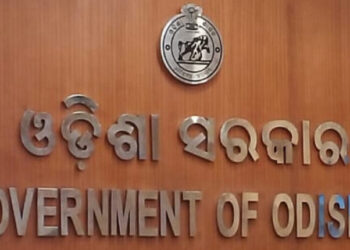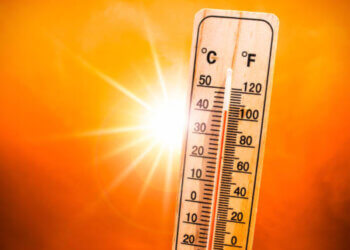The state is facing a heat wave as the temperatures continue to rise. Sambalpur became the warmest place today, with a maximum temperature of 42.2°C. As many as four cities in Odisha experienced temperatures of 40°C or higher.
This information was shared by weather scientist Umashankar Dash on his social media account on X (formerly Twitter) on Saturday.
According to the weather scientist, Sambalpur’s scorching temperature of 42.2°C was followed closely by Jharsuguda at 41.8°C, Rourkela at 40.5°C, Hirakud at 40.2°C, Kendujhar at 39.1°C, Chandbali at 39°C, and Bhubaneswar at 38.6°C.
Meanwhile, in its March 16 Midday Weather Bulletin, the India Meteorological Department (IMD) issued a red warning, indicating that heat wave conditions are likely to prevail in a few places, with severe heat wave conditions expected in one or two places across the districts of Jharsuguda, Sambalpur, and Kalahandi.
The IMD has also issued an orange warning for heat wave conditions in the districts of Angul, Sundargarh, Sonepur, and Boudh, as well as a yellow warning for one or two locations in Mayurbhanj, Balasore, Bhadrak, Dhenkanal, Balangir, Gajapati, Cuttack, and Khurda.
To stay safe from the heat, the IMD has suggested the following tips:
- Avoid prolonged exposure to heat.
- Wear lightweight, light-colored, loose, cotton clothes.
- Cover your head: use a wet cloth, hat, or umbrella when going out during peak hours.
- Drink sufficient water, even if you’re not feeling thirsty, to avoid dehydration.
- Use ORS, homemade drinks like lassi, torani (rice water), sugarcane juice, lemon water, buttermilk, etc., to rehydrate the body.
- Caution workers to avoid direct sunlight during peak hours.
- Schedule strenuous activities for cooler times of the day.
- Increase the frequency and length of rest breaks for outdoor activities.
- Pregnant workers and workers with medical conditions should be given additional attention.
- Recognize the signs of heat stroke, heat rash, or heat cramps, such as weakness, dizziness, headache, nausea, sweating, and seizures. If you feel faint or ill, see a doctor or go to the hospital immediately.
- Farmers are advised to continue irrigation activities for crops such as sugarcane, summer maize, pulses, and other vegetables.
- Avoid alcohol, tea, coffee, and carbonated soft drinks, which dehydrate the body. Avoid high-protein foods and do not eat stale food.
- Keep livestock in cool, shaded areas and provide drinking water for them.







 Finance
Finance







